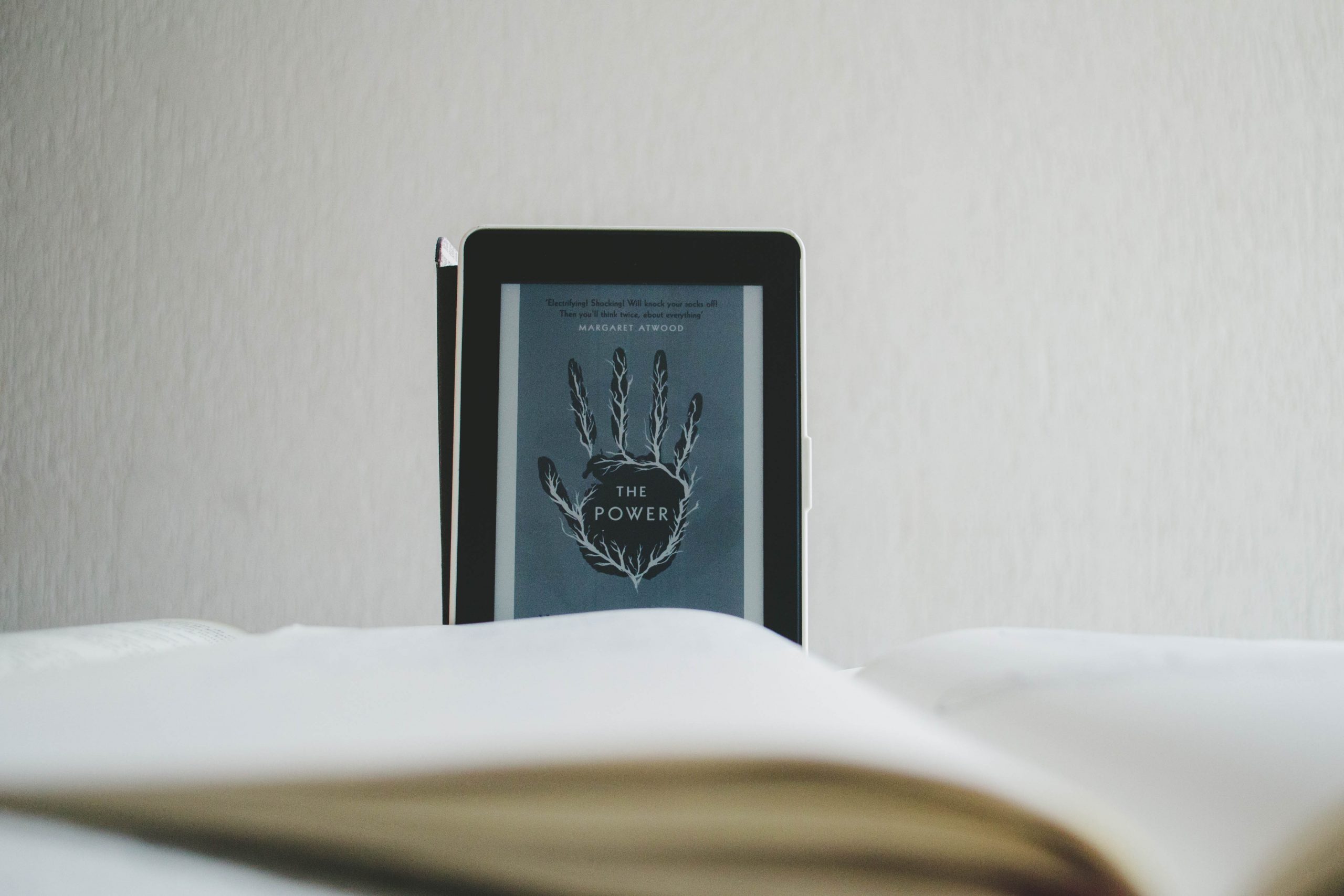I wanted to start a new series where I talk about the books I’ve been reading. I already do this over at my friend’s blog Cheirando Livros but it’s all in Portuguese. Let me know what you think!

I finished reading “The Power” by Naomi Alderman on International Women’s Day and I stared at the walls for about ten minutes. Like any other book that makes me analyze my preconcieved thoughts and ideas, I had to take some time to reflect about what I was feeling and thinking.
Gender is a shell game.
What is a man? Whatever a woman isn’t.
What is a woman? Whatever a man is not.
Tap on it and it’s hollow. Look under the shells, it’s not there
If I could describe this book in a sentence, it would go like this: In the end, it’s not about gender, but how absolute power can corrupt humans.

The story begins when teenagers are suddenly empowered by a genetic mutation that allows them to produce electric charge. They are also able to awaken powers in older women. Slowly, the roles are reversed when power in soceity is transferred from men to women. Before this society completely changes, we follow the lives of four different people. A young Nigerian journalist who decides to document the protests and women’s revolutions happening throughout the world. An ambitious American politician who struggles to control her power. The daughter of a mafia boss from London that discovers she has unparalled electric powers and an orphan who aspires to be the voice of the “goddess” on earth. She believes that these powers were given to the women by a goddess and wants women to take over.
We are witnesses to historical moments as the story develops. In Saudi Arabia, women use their powers to start a revolution and demand their rights. They attack with their electric charge and the men attack them with bombs.
In the west, the transition is calculated and planned. Women are encouraged to control their power and use it in a positive way. In the midst of this change, a new religion forms, started by Mother Eve. She manages to persuade women of her cause with her ability to heal. As word catches on about her so-called miracles, it starts a world movement, where women use their powers to get their own justice.
“Isn’t what we do to them, exactly what they did to us for so many years?” They justify themselves. The roles are reversed and now men are afraid. They don’t feel comfortable walking the streets alone and they feel weak. Where in the past, power was used to achieve equal rights, it’s now being used to put men in their place.
There were many moments in the book where I felt sick to my stomach and in others I felt really angry. We would like to think that if our roles were reversed, that we, women, would change the world. However, we forget our human condition. There is something about power. Even absoulte power at that. We start using it and we keep wanting more.
It doesn’t matter that she shouldn’t, that she never would. What matters is that she could, if she wanted. The power to hurt is a kind of wealth.
I felt that Alderman brillantly exposes a truth that a lot of us would like to ignore. It’s very easy for us to idealize gender. I think at times, I’ve been guilty of doing that as well. The thing is, men are not better than women. And also, women are not better than men. We are equal.

Encontre português aqui


Leave a Reply